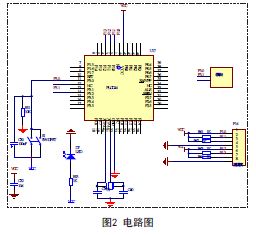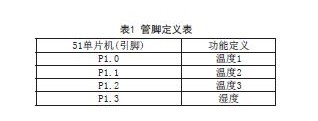
Privacy statement: Your privacy is very important to Us. Our company promises not to disclose your personal information to any external company with out your explicit permission.
1 Introduction
With the development and popularization of social information technology, the automation level of industrial process control is getting higher and higher, and various data collection on industrial sites is becoming more and more common. However, when some existing industrial sites are transformed, they are found. There are some difficulties in collecting industrial field data. For example, the data acquisition control center is too far away from the industrial site, or is not in one area at all, and may be distributed in several different cities or regions, perhaps because it is an old factory, if it is old In the case that the factory may affect the production or may not penetrate the wall or underground, all other methods must be used to collect data. Wireless is a common method, because wireless technology does not need For secondary wiring, the data collection points can be flexibly set and can be collected at multiple points. In wireless data acquisition, there are many forms, such as wireless output technology, zigbee technology, Bluetooth technology, infrared technology, etc. In this paper, we introduce the data acquisition technology based on GSM network, because the coverage of GSM network has been spread all over Throughout the country, with the help of the GSM network, specific industrial field data can be collected and monitored in places where there are mobile phone signals in China and even in the world. In this paper, the temperature and humidity acquisition in the industrial site is taken as the acquisition target, the temperature and humidity information is sent to the control terminal through the GSM module, and then the various switches of the industrial site are controlled according to the temperature and humidity information to maintain the temperature and humidity of the industrial site. A stable range.
2. System analysis and requirements
(1) Demand analysis
Firstly, the system needs to collect the temperature and humidity information of the industrial site, and then control the GSM module to send information. When the control terminal receives the information and completes the processing, it also needs to accept the control information of the control terminal, and correspondingly control the control information of the control terminal. the response to.
(2) System design
According to the above design idea, an intelligent control chip is needed first. This paper selects the 51-chip system which is more commonly used. When the complexity of industrial process control is improved, it can respond to the use of ARM series control chip or DSP chip and embed The operating system completes the control of the entire process. When the data acquisition is completed, it is sent to the data terminal through the GSM module. Therefore, the entire acquisition system needs to be composed of three parts: a temperature and humidity sensor, an intelligent control chip, and a communication module with the control terminal, the GSM module.
3. Component Description
Temperature acquisition sensor:
Because 51 single-chip microcomputer is used as the control core, 51 single-chip microcomputer will increase the number of peripheral circuits if it adopts analog sensor due to its own limitations. Moreover, due to various interferences in the industrial field, a digital temperature sensor is adopted. The DS18B20 acts as a temperature acquisition probe. DS18B20 adopts single bus structure, which can realize data acquisition as long as one data line, and realize multi-point measurement on one bus, that is, mount multiple temperature sensors on one bus. Moreover, in the case of a close distance, the data line can be used to reduce cable usage, simplify wiring, wide supply voltage range, compatible with 3.3V and 5.5V power supply, and can define temperature alarm information. At the same time, the sensor's temperature measurement range is also very wide, from -55 degrees to positive 125 degrees, the normal industrial site temperature acquisition is sufficient, the temperature accuracy range is adjustable from 0.5 degrees to 0.065. Similarly, DHT11 is used as the humidity acquisition probe. It is also a single-bus digital sensor that is ideally suited for use as a sensor in low-cost digital humidity acquisition systems.
In the system, in the GSM communication, Q2406B is used as the communication module to realize the communication between the control terminal and the 51 MCU in the field. Q2406B is a very good GSM module produced by France wavecom company. It has its own AT command system, which makes it easy to communicate with the external serial interface, complete the information exchange and control module information receiving and sending tasks.
4. Hardware schematic
4.1 Electrical connection diagram
The 51 MCU collects the data of the field environment into the MCU through the data bus, and then sends the data through the GSM module, as shown in Figure 1.

4.2 Circuit Schematic The circuit diagram of this circuit is shown in Figure 2.
As shown in Figure 2: The main control chip connects four single-bus sensors through P1.0, P1.1, P1.2P1.3. The sensor can make the temperature sensor or the humidity sensor. When the sensor is connected, the hardware is in the hardware. When programming, because the logic timing of the two devices is different, it is necessary to separately write different codes to drive. The definition in this example is shown in Table 1.


June 28, 2024
Wyślij je do tym dostawcy
June 28, 2024

Privacy statement: Your privacy is very important to Us. Our company promises not to disclose your personal information to any external company with out your explicit permission.

Fill in more information so that we can get in touch with you faster
Privacy statement: Your privacy is very important to Us. Our company promises not to disclose your personal information to any external company with out your explicit permission.